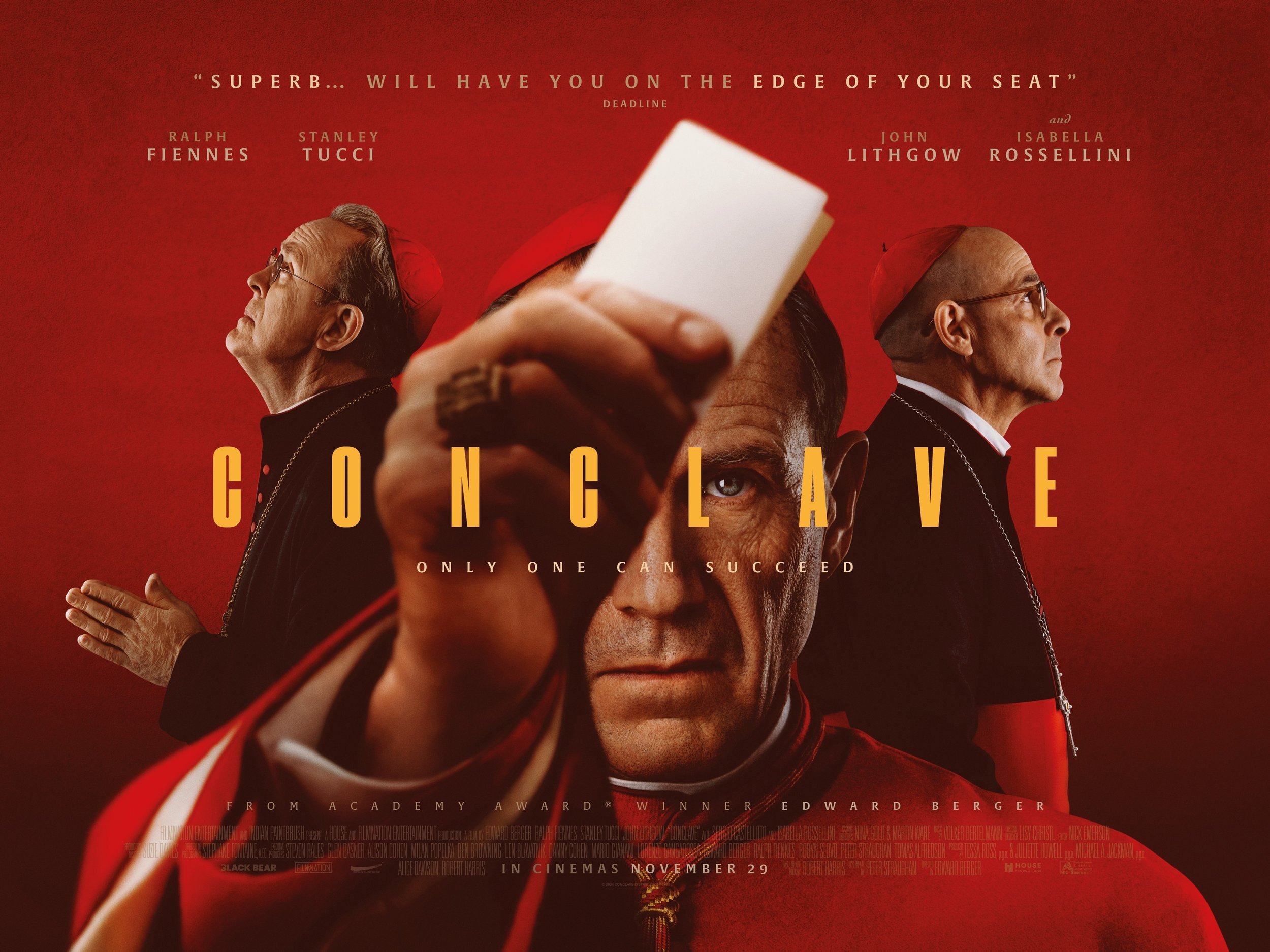Oppenheimer

Christopher Nolan has delivered a biopic that doesn’t feel at all like a biopic – instead it has all the tension, drama and propulsive energy of a political conspiracy thriller, as it tells the story of the man responsible for the creation of the world’s first nuclear weapon, and the impact that he had both on WWII and the world that followed.
Premise: Set across three different time periods, Robert Oppenheimer (Cillian Murphy) gives evidence at a security hearing in 1954, while in 1959, Lewis Strauss (Robert Downey Jr) attends his Senate confirmation hearing for appointment to President Eisenhower's cabinet. Both men give evidence of the events from 1926 onwards that led up to Oppenheimer’s appointment as the head of the Manhattan Project, America’s secret programme during World War II to develop an atomic bomb before the Nazis.
Review:
To set the context for this review, I have to confess that I’m not normally a fan of ‘biopics’ per se. Generally speaking (and I know this is a huge over-simplification), the course of a person’s life doesn’t often fit neatly into the narrative structure of a satisfying movie experience, which often results in problems with uneven pacing, particularly with ‘cradle-to-grave’ biopics.
Sometimes the best way to make a film about a real person’s life is to try not to make it feel like a traditional ‘biopic’ – and that’s exactly what Christopher Nolan has done with Oppenheimer. On the one hand, the film does follow Robert Oppenheimer (Cillian Murphy) from his time as a university student in the 1920s to his life after the end of WWII, but it never does so in a way that feels like a by-the-numbers biopic. Instead, the main events of the film are told in flashbacks during two pivotal post-war hearings: the first sees Oppenheimer have to justify his actions in a private security hearing in 1954, while the second (shot in black and white to assist the audience with identifying the different time periods) sees former chairman of the U.S. Atomic Energy Commission Lewis Strauss (Robert Downey Jr) asked to justify his earlier associations with Oppenheimer given the scientists previous connections to known Communists.
“…the cast is truly an embarrassment of riches…”
Cillian Murphy and Robert Downey Jr are both tremendous in their roles. Cillian Murphy has to convey so many different facets of his character over the 30-year period covered by the movie, and he’s often able to do so purely through his body language (given that his character rarely opens up to others verbally). Equally, Robert Downey Jr’s performance is a million miles away from his wisecracking, glib Tony Stark persona, yet he still retains the inherent charm and charisma that’s needed to see why his character could have got himself to the upper echelons of US political power.
Christopher Nolan has assembled a cast around them that’s truly an embarrassment of riches. Emily Blunt plays Kitty Oppenheimer (Robert’s wife), and Matt Damon plays General Leslie Groves (the military commander of the Manhattan Project), who are arguably the next two largest roles after Oppenheimer and Strauss – but there are also supporting roles for everyone from Florence Pugh, Matthew Modine, Kenneth Branagh, Josh Hartnett and Rami Malek, to David Dastmalchian, Jason Clarke, Alden Ehrenreich, Olivia Thirlby, Jack Quaid and Dane DeHaan – to name just some!
“…Christopher Nolan’s direction is a triumph…”
To address the elephant in the room, it is fair to say that the female roles in this movie are few and far between, but equally, I don’t know how much of that is just a fair reflection of the times in which the movie is set. Emily Blunt and Florence Pugh do get the opportunity to flesh out their characters somewhat, but this is ultimately Robert Oppenheimer’s story, and so every other character (male or female) is there only to service his personal storyline. That said, I did find some of the female nudity in the film unnecessary – whilst it certainly wasn’t titillating, I do question whether it was needed to advance either the plot lines or the character development of those involved.
Those minor issues aside, Christopher Nolan’s direction in Oppenheimer is a triumph. I don’t mind confessing that although I am a huge fan of Nolan’s filmography, my least favourite of his previous films is Dunkirk, his only other historical drama. So when it was announced that he was making another WWII-era historical drama, I was a little disappointed that we weren’t getting something from him as original as his last film, Tenet. But Nolan’s approach to Oppenheimer is to direct it as if it was a taut race-against-the-clock drama or a tense political conspiracy thriller, rather than a straightforward life story. The background paranoia surrounding Oppenheimer’s left-wing politics as the perceived threat of Communism and the possibility of a Cold War with Russia looms larger only heightens the sense of tension surrounding to race to become the world’s first (and only) nuclear power.
“…doesn’t shy away from the moral implications of Oppenheimer’s work…”
If, like me, you only knew about Robert Oppenheimer, the Manhattan Project and the Trinity weapons test in broad terms, it’s likely that some of the twists and turns in this film will take you by surprise. But even if that’s not the case, the parts of the story that I was already familiar with still kept me gripped, thanks to the strength of the performances and the direction. And this isn’t a film that requires any understanding of quantum physics to understand – in fact, it’s ironic that Christopher Nolan has made a film about nuclear science that’s actually easier to follow than some of his earlier sci-fi stories!
Not only is the film a race-against-time, a political thriller and a character drama, it also doesn’t shy away from the moral implications of Oppenheimer’s work in terms of ushering in the Nuclear Age, and it doesn’t give the audience any easy answers. Some characters are morally opposed to the work from the outset, others are more pragmatic (the ‘if we don’t do it, the Nazis will’ approach), while others have a more complex, ambivalent and contradictory attitude still. The film doesn’t give you an easy answer, but it also doesn’t shy away from asking the audience to consider their own feelings on the issue.
“…the final few scenes are sublime…”
Overall, this isn’t an ‘easy’ film in any sense – it’s a talky, 3-hour political thriller, after all – but there are never any moments that feel extraneous or superfluous to requirements, it’s simply that there’s a lot of story to cover. It’s also not as depressing or as dour as you may have feared – yes, the subject matter is deadly serious, but there are also plenty of lighter, and even triumphant, moments to balance it out, and the final few scenes are sublime. In the end, the longer runtime allows Christopher Nolan and Cillian Murphy to really get under the psyche of Robert Oppenheimer, so that you leave the cinema with a greater understanding of the complexities of his character.







